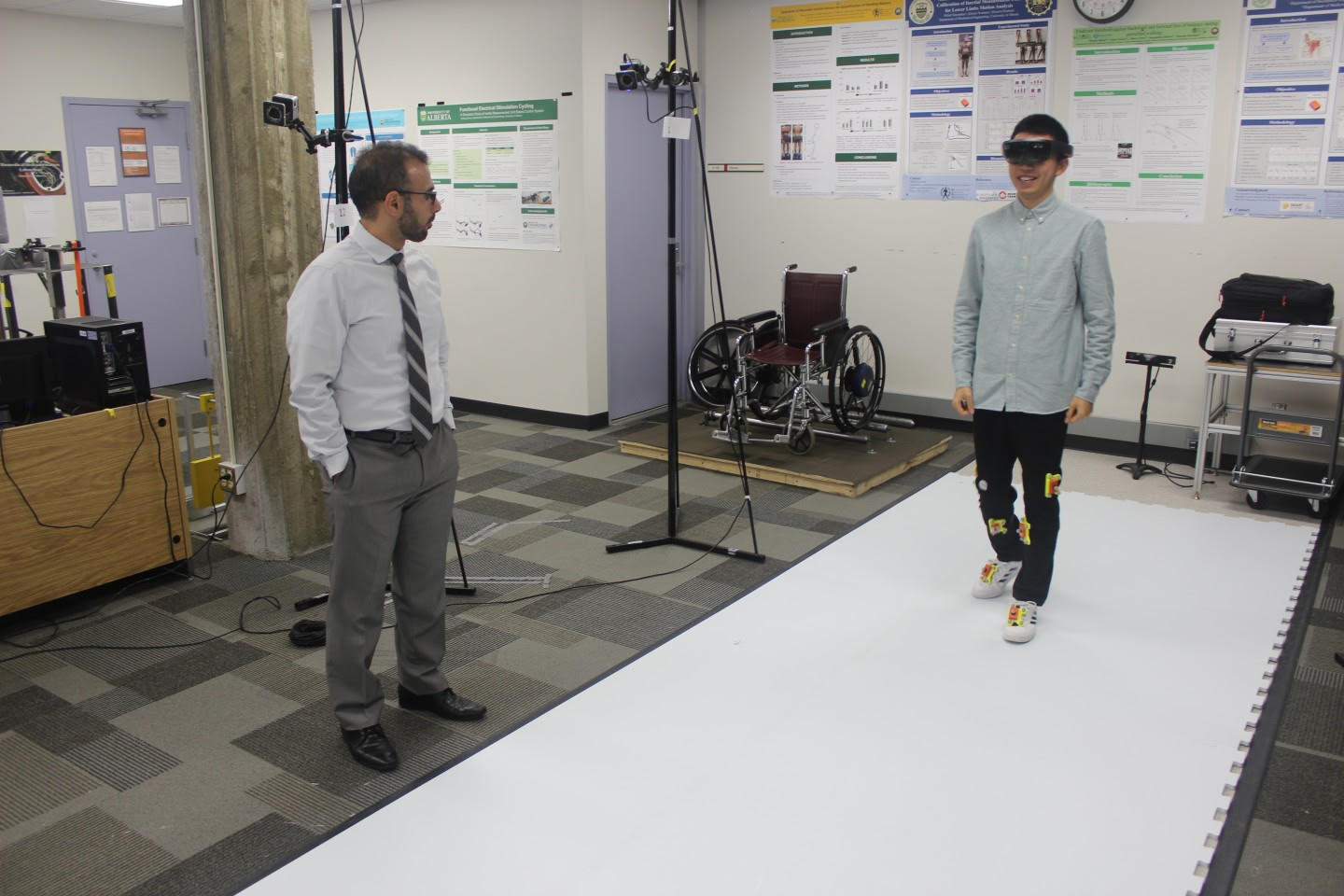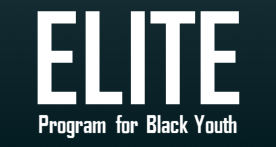
Author: Tom Ndekezi
4 August 2021
Dr. Hossein Rouhani is an Associate Professor in the University of Alberta’s Faculty of Engineering. Dr. Rouhani has been at the University of Alberta since 2015, where he investigates topics in the fields biomedical engineering, biomechatronics, robotics and artificial intelligence, and the development of wearable technologies in the Neuromuscular Control and Biomechanics Laboratory (NCBL).
Despite the breadth of research topics in the NCBL, where it all comes together is in Rouhani’s team’s research into ways to turn wearable technologies from general fitness trackers into fine-tuned clinical tools. Facilitating that transformation requires a sophisticated understanding of biomechanics and biomedical instrumentation, as well as constant dialogue with medical professionals, high-performance athletes, and workplace safety experts.
The NCBL is also hosting two ELITE Program interns over the course of the summer, exposing them to a high-powered research environment at the intersection of multiple STEM disciplines. We recently caught up with Dr. Rouhani to discuss how he became involved with the ELITE Program, his experience so far as an internship host, advice he would give to other potential hosts interested in partnering with the ELITE Program, and more.
Responses have been edited for brevity and clarity.
ELITE: Just to start, can you tell us a little bit about how you first heard about the ELITE Program?
Dr. Rouhani: I was initially invited by Dr. McDonald, and then another faculty member in the Faculty of Engineering got to talking to me and asked me if I was interested. And of course, I was very interested.
I really enjoy being asked to be part of internship programs because I think that they are the right way to go.
After that initial introduction, what made you decide to invest in the ELITE Program as an internship host?
Across the board, we currently see people working and talking about promoting equity, diversity and inclusion, which is just great. It sounds great, it is great, and it's really time that we started doing that. I also believe that many of us are in a personal and professional growth stage where we are thinking about ways for us to promote the creation of an environment — in our case, an academic environment — which centres on diversity, equity and inclusion.
Yet, there are not that many programs around that have a plan for creating that inclusion. Now, the ELITE Program is unique for people who have the intention to begin creating those environments because it shows them the way to help, which is very interesting. But what I really like about the ELITE Program is that it helps individuals from equity-deserving groups to learn more, gain more experience and learn how to grow within their professional career. It's not just a short-term opportunity, it's an opportunity to learn how to keep growing constantly.
I also believe that academic training should start at a very early age. The creation of opportunities should start from elementary school, high-school, undergrad, college, graduate studies and at all levels. We should not expect people to have already graduated before we decide to help them. So, when I saw ELITE’s plan to involve high-school, college and university students, I thought that was awesome. You don't see it much in other programs, so I am very delighted to be partnering with ELITE.
What has your experience been like so far working with ELITE Program interns?
The students that are selected by the ELITE Program are outstanding, no doubt about it. You don't really need to train them much because they're already outstanding from the beginning.
And, of course, the internships are an opportunity for the ELITE students to learn about research and technology development, but on the other hand, it's also a great opportunity for my postdoctoral fellows and PhD students to learn how to supervise undergraduate students. It's just a learning opportunity for everyone; for ELITE students, for graduate students, postdoctoral fellows and even for the supervisors. It's a very well-planned program, and the outcome so far has been surprisingly great.
In your experience as a recruiter, what's the benefit of working with students or new graduates who have experienced hands-on, work-integrated learning?
When a student has great grades, you know about the knowledge that person possesses but you don't have any evidence as to how that person can implement their acquired knowledge. Programs like ELITE give future employers solid, significant, and objective evidence as to how the student uses their academic background in advanced research settings or when faced with real world problems. It’s the same reason why co-op projects are very appealing.
I also think that the project host assignment process by the ELITE Program has been really good, because we see students coming to the lab who are already well-prepared for what we need to do, which allows them to be trained in an excellent way.
What kind of attributes or characteristics do you tend to look for in a new recruit?
I look at academic background for sure, but then I also look at experience and practical skills. Those can be practical technical skills, or even soft skills like interpersonal communication, leadership, and teamwork skills. Those are all important. The motivations of the prospective team member would also be an important factor, and of course, talking to the references.
Having now spent a month as an internship host, is it an experience that you would recommend to anyone interested in getting involved with the ELITE Program as an internship host in the future?
Absolutely. I would highly encourage people to be internship hosts for the ELITE Program, although on the other hand, I also want to have all the interns to myself.
From your perspective as an internship host, what are you hoping to see the ELITE Program grow into in the future?
My one wish for the ELITE Program is that they would have more applicants. That said, that’s going to naturally happen in the next year as the program becomes more well-known and more students start showing interest.

